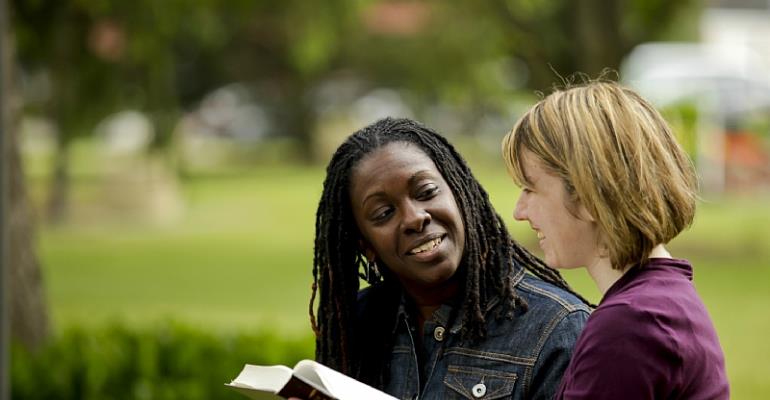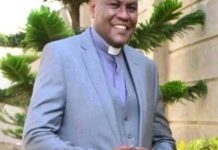
A few days ago, I read Efe Plange’s article, ‘Evangelism is a form of colonialism,’ published by City Newsroom, with some concerns. The article discusses John Allen Chau, a twenty-six years old native of Vancouver, Washington and Christian missionary, who was killed by the people of the Sentinel Island in India’s Bay of Bengal. The members of the island have been isolated for centuries. They are aggressive and hostile to outsiders who attempt to interact with them. Also, under Indian law, the island is off-limits to visitors. Following his Christian mandate to preach the Gospel truth to all, John decided to go to the islanders to share God’s word with them. John knew that he was putting his life on the line when he decided to go to the island. In a note to his family before he set off for the island, he wrote, “You guys might think I’m crazy in all this but I think it’s worthwhile to declare Jesus to these people.” He also added: “Please do not be angry at them or at God if I get killed–rather please live your lives in obedience to whatever He has called you to and I will see you again when you pass through the veil.” For me, as a Christian, I agree with the initiative taken by John to present the Gospel to the islanders. Even so, our secular culture has taken a swipe at his initiative, with many of them describing Christian evangelism as a form of colonialism.
Efe’s article expresses such a view. While the article raises issues that are critical and should be of interest to Christians involved in mission work, I think that Efe glosses over some basic issues about colonialism, Christianity and evangelism. In the article, she identified herself as a Christian, but her interactions with people of different religious background, specifically Hindu and Buddhism, predispose her to reevaluating Christian evangelism. Her Afrocentric bent and respect of other religions makes her antagonistic to the centrality of salvation to Jesus Christ alone. Consequently, in her evaluation, the Christian mission of evangelism with the sole intention of conversion is nothing short of colonialism. She clearly contradicts Jesus’ command to Christians to witness the uniqueness of the Christian message to the world. Since Efe’s argument is not a novel among academics, I will respond to it, by appealing to history to point out the flaws in her argument. As an Akan, with some degree of knowledge about my ethnic group, I will largely draw on Akan examples to make my point. This is not to overlook the importance of other ethnic groups in Ghana and Africa, as far as Christ mission to Africa is concerned.
The first flaw of Efe’s argument is that she conflates Christianity and colonialism. Since this is usually what is harped by critics of Christian mission among the Akan, I will spend some ink setting the records straight. While it is true that some of the European missionaries who came to Africa were bent on establishing alliance with other European colonial powers to Christianize the continent, it is not true that all the Europeans who came to Africa had one purpose. It is the homogenization of Europeans who came to Africa in the fifteenth that has informed people’s understanding of Christian missionaries. It is important to state that NOT all the Europeans who came to Africa shared the same interest in looting the resources of the continent. Broadly, there were three categories of Europeans who came to Africa. There were missionaries, merchants, and mercenaries (administrators). While sometimes there was overlapping of interest, we must be clear that, in many instances, the three groups had their interest conflicting with each other.
To understand this complex mix, we need to periodize the coming of Europeans and missionaries to Africa. Following the particularistic logic of Kwasi Wiredu, a prominent Ghanaian sage and philosopher, I will limit my discussion of the distinctive roles of the Europeans to the Akan of Gold Coast. In the fifteenth century, the Portuguese were the first to sail to the coast of Ghana (then Gold Coast). Their interests converged on religion and trade. Initially, they did not make clear their political intension. The interest they demonstrated was religious and economic engagement with the people of Gold Coast. And so, when they first met Kwamena Ansah (whom they referred to as Caramansah), the chief of Elmina, they had two requests: first convert the chief to the Christian faith and second, secure a parcel of land to build a warehouse where they could keep their wares.
Presciently, the chief of Elmina refused to cave in to both requests. He turned down the request to become a Christian. This was obviously because the demands of Christianity were at odds with the demands of his office as a traditional leader. In terms of the construction of a warehouse, Kwamena Ansah knew that living close with ‘strangers’ (the Portuguese) was likely to undermine their friendship. Accordingly, Kwamena Ansah told the Portuguese (led by Don Diego d’Azambuja and other emissaries) that their friendship would be solidified if they (the Portuguese) kept straddling Portugal and Elmina. Some historians of Africa relay that, under pressure, Kwamena Ansah gave the Portuguese a parcel of land (believed to host the deities), hoping that the deities would kill the Portuguese. As fate would have it, the Portuguese survived and built what is now the biggest castle in Africa (Elmina castle) in 1482. The outcome of the castle was the infamous and barbaric slave trade.
In the fifteenth century, it is clear that because of many factors, principally the conflation of economic and religious motives, the Europeans did not succeed in mission work. The prominent Church historian, Lamin Sanneh, has rightly referred to the fifteenth century as the quarantining of Christianity. This is true, because in the early stages, the Europeans were not keen about converting the people along the coast of Ghana. The priests who had followed the merchants to the coast satisfied themselves with doing their core duty: providing religious service to the merchants in the castles. We can safely conclude that in the fifteenth century, Christianity did not make any significant inroads into the hearts of the people of Gold Coast.
Organized mission work in Gold Coast began in the nineteenth century, beginning with the Basel (Basle) missionaries on December 18, 1828. The Father of Basel Mission in Ghana was Andreas Riis. Andreas Riis, who arrived in Accra in 1832, was not keen about engaging in politics. He avoided creating any false impression that he was in bed with the Danish colonizers of the coast of Accra. He refused to allow the Danish governor, F.S. Morck, to offer him protection anytime he moved into the Akuapem area. He refused to hoist the flag of the Danes in Akuropon, to signal his disinterest in representing political interest and Danish authority. Andreas Riis and the other Basel missionaries, including Peter Peterson Jager and Christian Frederich Heinze (a medical missionary from Saxony), refused to identify with the Danish political authority. Because Andreas Riis persistently refused to cave in to the pressures of the Danish governor, he was temporarily kept under detention. In fact, the political neutrality of Andreas Riis reflected the stance of the Basel Mission Committee who had written to their missionaries to stay way from colonial politics. Later when Riis was freed, he permanently moved to Akuapem. He became so influential in his engagement with the Akan people that, he was called Oseadan (the great builder). He introduced bricks building in the Akuapem range. He undertook to keep his neutrality from the colonizing mission to the extent that he was considered a friend of traditional political actors. In most cases, when Akan chiefs had issues with the governor, they would fall on Andreas Riis to intervene. In some cases, he mediated Akan intra-ethnic conflicts.
Another missionary who was also influential in the nineteenth century was Thomas Birch Freeman who came to Gold Coast in 1838. Thomas Birch Freeman is considered the Father of Methodism in Ghana. Just like Andreas Riis, Thomas Birch Freeman was very careful not to involve himself in colonial politics that could undermine his relationship with the Akan, particularly the Ashanti. He succeeded in establishing Methodism in Gold Coast, including Ashanti territories, because he was able to weave through the complex terrain of engaging culture and Gospel. The Asantehene, Kwaku Dua (I) considered Freeman a peaceful person.
Leaving the historic churches aside, I will now focus my attention on James McKeown, the founder of the Church of Pentecost. Usually, Pentecostals are considered hostile to Akan culture. But the mission strategy of McKeown offered contrary account to this narrative. When James McKeown came to the Gold Coast in 1937, he was clear about the need to keep a distance from destroying the cultures of the Akan. Concerning his accommodativeness of the Akan culture, he told Christine Leonard, who wrote the book: A Giant in Ghana, that:
Despite all my years in West Africa and Northern Ireland, I have kept my Scottish speech and ways, as is the right of every man. I did not come to change the Africans from being African: I told them they should be proud of being African. … I taught them the Bible, got them to know Jesus and told them if God is giving children, He hasn’t to send to England for a nose [sic] to put on an Africa!
The Church of Pentecost and the historic churches have all reengaged with different Akan cultures. This is to the extent that in contemporary Ghana, many of these churches have accepted some peculiar Akan institutions, including chieftaincy. Political independence, for many Ghanaian Christians, also came with religious independence. As many Ghanaians took over the leadership of the Church they inherited from European missionaries, they have involved themselves in the business of inculturation (contextualized theology) to build bridges between some Ghanaian cultures and Christianity.
Usually, those who accuse European missionaries of destroying African cultures are hardly able to provide specific cultural idioms of the people of Ghana and Africa that the missionaries destroyed. In most cases, such flawed argument has come from European anthropologists, who are interested in studying the uniqueness of the other to advance their academic career. Also, there have been Afrocentric scholars, who are bent on recapitulating some African cultures. In most cases, again limiting myself to Akan, missionaries’ prohibition of some Akan cultures, such as polygyny, extreme forms of widowhood rites, witchcraft practices, killing of twins/children with strange features, and indigenous slavery were part of Christian redemption to those on the fringes of society. That these practices did not benefit those on the margins of society explained why the redemptive mission of the Christian faith appealed to many Akan people. Elsewhere in Africa, scholars have made similar observation that Christianity appealed largely to persons who had been socially and politically alienated. I am convinced that Efe Plange, who is the founder of Pepper Dem Ministries, will consider the prohibition of these Akan cultural practices redemptive for women.
The second reason for the flaws in Efe Plange’s article is her failure to see the basis of Christianity, which is conversion (turning away from false beliefs to Jesus Christ). While conversion may involve turning away from some cultural beliefs and practices, it is not the same as de-culturalization. It is, therefore, impossible for Christians to go about mission without making converts (through the Holy Spirit). Consequently, while Christians cannot exchange conversion for universalism, the question that needs to be engaged is: how should Christians go about conversion without destroying cultural practices that are innocuous (from the Christian perspective)? Admittedly, it is here that some of the missionaries to the Akan failed. The hastened condemnation of every aspect of Akan culture by some of the missionaries was not in consonance with the dialogical nature of the Gospel of Jesus Christ. The dismissing of Ephraim Amu from the pulpit, because he wore cloth while he preached, was one of the extremes of the cultural imperialism of some of the missionaries. But the truth is that the Christian mission and its power of cultural conversion are foreign to any culture. The Jews were against the Christian faith, because it created bridges between the ‘sinner’ and ‘saints’. The Greeks also could not accept Christianity because they considered it a senseless religion. Currently, in Europe, there is resurgence in spiritism, framed around the New Age Movement – a fusion of western science and Eastern spirituality.
It must also be emphasized that while Europeans used words like, ‘paganism’, ‘fetishism’, and ‘primitive’ to refer to some aspects of Akan cultural practices, these words were not coined in Africa. The Europeans had used the same words to describe some aspects of their cultures. It is, therefore, wrong to assume that the Europeans were uncritical about their own cultures that were counter-culture to the Christian faith. With this in mind, since the beginning of the twentieth century, most Christian missionaries have been very sensitive to different cultures. The fact that most Christian missionaries immerse themselves in seeking to establish points of confluence where they could engage other cultures is emblematic of how Christian mission has continued its tradition of respecting cultures.
Christianity claims to hold the Truth that must be shared with the rest of the world. This Truth, which is embodied in the person and work of the historic Jesus Christ, cannot be compromised. Incidentally, Jesus told Christians to go to the world not to convert, but to preach and teach. As part of the preaching, the Holy Spirit will do the conversion. Mostly, people have confused preaching, teaching, and conversion. This is because there is a thin line of demarcation between preaching and teaching, and conversion. Christians are to do the teaching and preaching, and allow the Holy Spirit to do the conversion. This missionary strategy is borne out of the fact that Jesus said that no one can come to Him except His Father draws one closer. This is, however, not to say that Christians should neutralize the centrality of the Christian message, by shifting from particularism (the uniqueness of salvation to Jesus Christ alone) to universalism (claiming that one can be saved outside of Christ). Christians cannot shy away from the uniqueness of their message. While this may be counterculture to the postmodern world (where truth is relativized), Christianity maintains its fervor by preaching that salvation is by grace alone, through faith alone, and in Christ alone.
The other aspect of Efe’s article was her claim that Christians should stay away from other cultures. This argument lacks insight into the changing face of global culture and politics. In fact, in scholarship, the question is no more about whether indigenous cultures should be left alone (as that is now obsolete), the question is about who should first go to indigenous people. The capitalization of global economic activities and neoliberalism (accompanied by the search for raw materials) has put indigenous cultures under serious threats. The so-called pigmies in the Great Lake Regions of East Africa continue to suffer exploitation from their neighbors. Their lack of education and untouched with contemporary schemes of doing things have placed them under the mercy of pillagers. The excessive pillaging of autochthons has raised concerns among world leaders to provide some form of protection to such people. There is no doubt that Christian missionaries have proved more efficient in bringing hope to autochthons than any known groups – governmental and non-governmental. The ability of Christian missionaries to study the language of autochthons has opened opportunities for autochthons to receive education. Education has also meant that autochthons are empowered to resist exploitation. The work of Christian missionaries among autochthons, including the Sawi and Wai Wai, has been incredibly a blessing.
In conclusion, the Church continuous to engage culture, since the cardinal teachings of Christianity and required lifestyle are countercultural in orientation. But shelving autochthons from the touch of Christianity is to deny autochthons empowerment to face the riddles of the modern world.
Satyagraha
Charles Prempeh (prempehgideon@yahoo.com), African University College of Communications, Accra
Christine Leonard (1989). A Giant in Ghana. Chichester: New Wine Press, pp. 64-65









